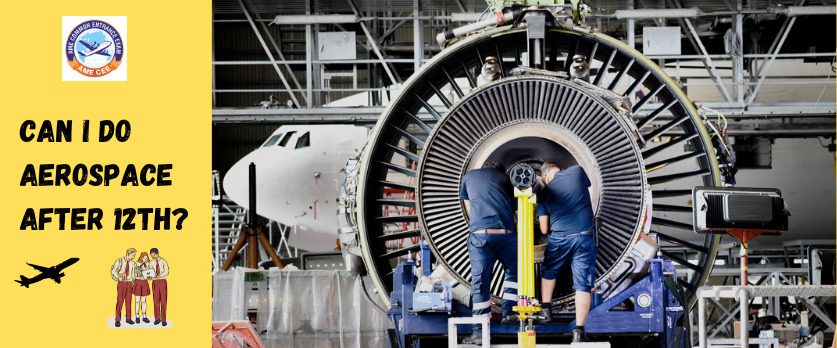As a student completing your 12th grade, the world of possibilities awaits, and one exciting option is venturing into aerospace studies. If you’re fascinated by airplanes, spacecraft, and the wonders of flight, here’s a guide on how you can embark on a journey in aerospace after completing your 12th.
Choose the Right Educational Background
Key Step: To pursue aerospace studies after 12th, it’s essential to have a strong educational foundation. Opting for a combination of Physics, Chemistry, and Mathematics (PCM) in your 12th grade equips you with the necessary background for aerospace engineering programs.
Select the Right Course
Options Available: After completing 12th with PCM, you can enroll in various aerospace-related courses. Consider pursuing a Bachelor’s degree in Aerospace Engineering, Aeronautical Engineering, or a related field. Some universities also offer specialized programs in aviation, aircraft maintenance, or space science.
Entrance Exams and Admission Process
Next Steps: Many universities and institutes require students to clear entrance exams for admission to aerospace engineering programs. Entrance exams like JEE (Joint Entrance Examination) in India or SAT (Scholastic Assessment Test) in the United States are common. Prepare diligently and meet the eligibility criteria for the chosen program.
Explore Specializations
Diversify Options: Aerospace studies offer various specializations. Depending on your interests, you can focus on aerodynamics, avionics, propulsion systems, space exploration, or aircraft maintenance. Exploring these specializations allows you to tailor your studies to match your passion.
Hands-On Experience and Internships
Practical Exposure: To enhance your learning, seek opportunities for hands-on experience and internships. Many aerospace programs incorporate practical training, but additional internships with aerospace companies or research institutions provide valuable real-world exposure.
Stay Updated on Technological Advances
Dynamic Field: Aerospace is a dynamic field with continuous technological advancements. Stay informed about the latest developments in aviation and space exploration. Reading industry publications, participating in workshops, and engaging with online communities can keep you abreast of current trends.
Consider Advanced Degrees
Career Growth: While a bachelor’s degree is a great starting point, consider pursuing advanced degrees like a Master’s or Ph.D. in Aerospace Engineering for deeper knowledge and potential career advancement.
Join Professional Organizations
Network and Learn: Joining aerospace-related professional organizations can provide networking opportunities and access to resources. Organizations like the American Institute of Aeronautics and Astronautics (AIAA) or the Royal Aeronautical Society offer memberships for students.
Participate in Projects and Competitions
Showcase Skills: Engage in aerospace projects and competitions to showcase your skills. Participating in initiatives like designing model aircraft, conducting research projects, or joining aerospace-related competitions enhances your practical abilities and sets you apart.
Job Opportunities and Future Outlook
Exciting Careers: Upon completing your aerospace studies, a world of exciting career opportunities awaits. Whether you aspire to be an aerospace engineer, pilot, space scientist, or work in aircraft maintenance, the aerospace industry offers diverse paths for career growth.
In conclusion, yes, you can certainly pursue aerospace studies after completing 12th with a PCM background. With the right educational foundation, passion for flight, and a commitment to continuous learning, you can take off on a fulfilling journey in the fascinating world of aerospace.
To become an aerospace engineer you may could join aerospace engineering through AME COMMON ENTRANCE EXAM (AME CEE) this examination you may join Aerospace Engineering approved by AICTE.


